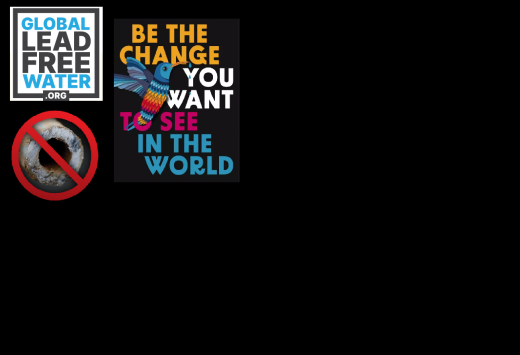Highlights of RWSN's projects, partnerships and knowledge products
A Global Pledge to Protect Drinking Water from Lead World Water Day / UN Water Conference 2023
 Global Lead Pledge
© 2023 Various • Various
Global Lead Pledge
© 2023 Various • Various
Project starts: 2022
Project finished: 2040
Collaborators & Partners: Governments of South Africa, Uganda and Ghana, WHO, UNICEF, Conrad N. Hilton Foundation, LIXIL, RTI international, World Plumbing Council, University of North Carolina, World Vision, IAPMO, RWSN, University of Leeds, WaterAid,
Summary
Nothing is more fundamental to human health and well-being than access to safe drinking water. In 2016, world leaders adopted the Sustainable Development Goals (SDGs) including SDG 6 — a universal call to action to provide access to safe and affordable drinking water to every person, everywhere, by 2030. As part of our global commitment to provide water that is free from microbial hazards and priority chemical contaminants that impact human health, we launch this global initiative to work towards lead-free drinking water by 2040.
Project Description
Lead is an invisible, odorless and tasteless chemical contaminant present in water supply systems worldwide. The primary source of lead in many systems is lead-containing pipes and parts that leach lead into the water. No safe level of lead exposure has been identified. Lead is a toxin that irreversibly impacts neurological and cognitive development. Acute or chronic childhood exposure to lead causes lifelong harm.
Exposure of pregnant women to high levels of lead can cause fetal deaths and developmental abnormalities. Yet today environmental exposures to lead remains a significant global challenge. Globally, 800 million, or roughly 1 in 3, children have elevated levels of lead in their blood.
There is an urgent need to reduce human exposure to lead in the environment, including to lead in drinking water – a source of exposure that is wholly preventable. Children, in particular, must be able to grow in a leadfree environment. The Global Pledge to Protect Drinking Water from Lead aims to build momentum around local and global initiatives to progressively reduce lead exposure from drinking water and protect public health.
Our goal is to work collectively towards preventing lead-leaching from new drinking water systems by 2030 and to make all drinking water lead free by 2040.
Perspectives
Rien n'est plus fondamental pour la santé et le bien-être de l'homme que l'accès à l'eau potable. En 2016, les dirigeants du monde entier ont adopté les objectifs de développement durable (ODD), dont l'ODD 6 - un appel universel à l'action visant à donner accès à de l'eau potable salubre et abordable à chaque personne, partout, d'ici à 2030. Dans le cadre de notre engagement mondial à fournir une eau exempte de risques microbiens et de contaminants chimiques prioritaires ayant un impact sur la santé humaine, nous lançons cette initiative mondiale visant à obtenir une eau potable sans plomb d'ici 2040.
No hay nada más fundamental para la salud y el bienestar humanos que el acceso al agua potable. En 2016, los líderes mundiales adoptaron los Objetivos de Desarrollo Sostenible (ODS), incluido el ODS 6, un llamamiento universal a la acción para proporcionar acceso a agua potable segura y asequible a todas las personas, en todas partes, para 2030. Como parte de nuestro compromiso global de proporcionar agua libre de peligros microbianos y contaminantes químicos prioritarios que afectan a la salud humana, lanzamos esta iniciativa global para trabajar por un agua potable sin plomo para 2040.
 Google Übersetzer
Google Übersetzer
